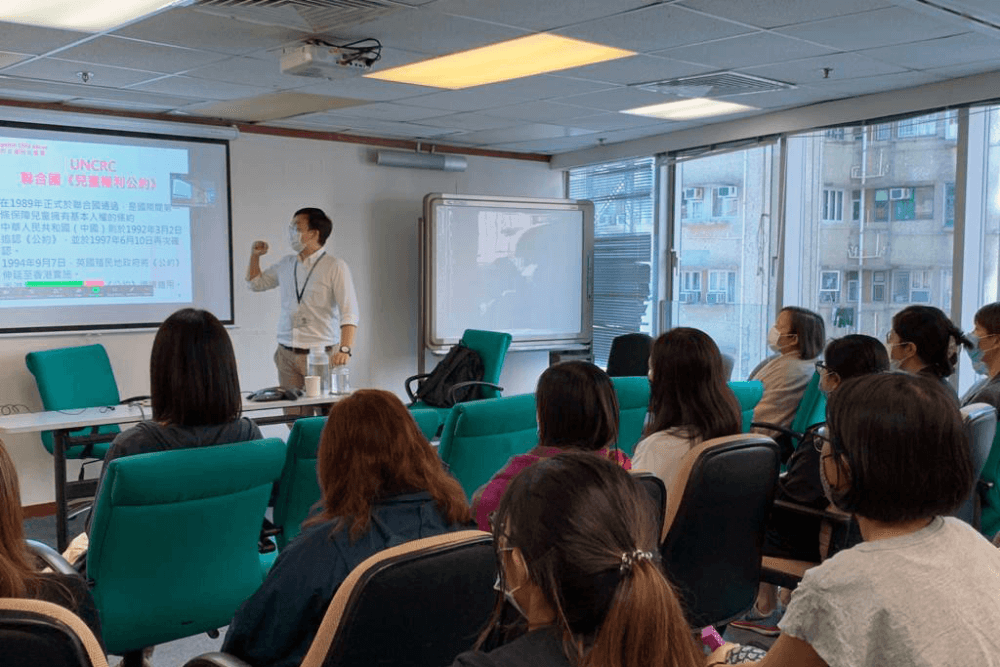Belgium Govt Scholarships 2024/25 for ARES Partner Countries
Belgium Govt Scholarships 2024/25 for ARES Partner Countries
Are you a national of an ARES partner country? Do you have a higher education degree? Do you have professional experience and would you like to deepen your skills in a development-related topic?
Belgium Govt Scholarships 2024/25 for ARES Partner Countries. The ARES scholarships offer you the opportunity to follow a one-year advanced bachelor’s or master’s degree program or a 2-to-6-month continuing education program within a higher education institution of the Wallonia-Brussels Federation in Belgium.
Recommended: Scholarships for Masters – ICP Connect
Awarding Country: Belgium
Eligible Countries:
ARES Partner Countries: – Benin, Bolivia, Burkina Faso, Burundi, Cambodia, Cameroon, Cuba, Democratic Republic of Congo, Ecuador, Ethiopia, Haiti, Indonesia, Kenya, Madagascar, Morocco, Mozambique, Nepal, Niger, Peru, Philippines, Rwanda, Senegal, South Africa, Tanzania, Tunisia, Uganda, Vietnam and Zimbabwe.
Program Level:
- Bachelors
- Masters
- Continuing Education Courses
Programs: The list of Programs under Belgium Govt Scholarships 2024/25 is as follows:-
Bachelors:
Masters:
- https://www.ares-ac.be/en/cooperation-au-developpement/bourses/ressortissants-sud/masters/134-master-de-specialisation-en-droits-humains
- https://www.ares-ac.be/en/cooperation-au-developpement/bourses/ressortissants-sud/masters/136-master-de-specialisation-en-gestion-des-risques-et-des-catastrophes-a-l-ere-de-l-anthropocene
- https://www.ares-ac.be/en/cooperation-au-developpement/bourses/ressortissants-sud/masters/137-master-de-specialisation-en-gestion-integree-des-risques-sanitaires
- https://www.ares-ac.be/en/cooperation-au-developpement/bourses/ressortissants-sud/masters/138-specialized-master-in-international-and-development-economics
- https://www.ares-ac.be/en/cooperation-au-developpement/bourses/ressortissants-sud/masters/141-specialized-master-in-microfinance
- https://www.ares-ac.be/en/cooperation-au-developpement/bourses/ressortissants-sud/masters/142-specialized-master-in-public-health-methodology
- https://www.ares-ac.be/en/cooperation-au-developpement/bourses/ressortissants-sud/masters/143-master-de-specialisation-en-sciences-de-la-sante-publique-analyse-et-evaluation-des-politiques-programmes-et-systemes-de-sante-internationale
- https://www.ares-ac.be/en/cooperation-au-developpement/bourses/ressortissants-sud/masters/145-master-de-specialisation-en-transport-et-logistique
- https://www.ares-ac.be/en/cooperation-au-developpement/bourses/ressortissants-sud/masters/140-master-de-specialisation-en-design-d-innovation-sociale
- https://www.ares-ac.be/en/cooperation-au-developpement/bourses/ressortissants-sud/masters/817-master-de-specialisation-en-nexus-eau-energie-alimentation
Continuing Education Courses:
- https://www.ares-ac.be/en/cooperation-au-developpement/bourses/ressortissants-sud/formations-continues/815-formation-en-science-des-donnees-pour-la-sante-mondiale
- https://www.ares-ac.be/en/cooperation-au-developpement/bourses/ressortissants-sud/formations-continues/814-pedagogie-universitaire-numerique
- https://www.ares-ac.be/en/cooperation-au-developpement/bourses/ressortissants-sud/formations-continues/816-certificat-interuniversitaire-et-interdisciplinaire-en-justices-transitionnelles
- https://www.ares-ac.be/en/cooperation-au-developpement/bourses/ressortissants-sud/formations-continues/813-comprendre-et-gerer-les-dimensions-humaines-des-projets-de-changement-en-developpement-durable
- https://www.ares-ac.be/en/cooperation-au-developpement/bourses/ressortissants-sud/formations-continues/812-formations-continues-en-assurance-qualite-filiere-1-et-controle-en-qualite-filiere-2-des-medicaments-et-produits-de-sante
- https://www.ares-ac.be/en/cooperation-au-developpement/bourses/ressortissants-sud/formations-continues/128-formation-en-systeme-d-information-geographique-libre
Financial Support Type:
- Economy class air travel one round trip
- Living allowance
- Exceptional costs related to visa applications
- Registration fee
- Insurance fee
How to apply?
Applications for Belgium Govt scholarships 2024/25 must be submitted by the application procedure and meet the eligibility criteria described below. The selection of scholarship holders is made by a selection panel for each training course after analysis of their administrative admissibility by ARES.
All applications received between the first and last day of the call will be treated equally. ARES encourages applications from women. For equal quality, women will be given preference.
Applying for an ARES scholarship is completely free. ARES does not charge any fees at any stage of the application or selection process. You may inform us via e-mail at scholarships-cooperation@ares-ac.be of any problems with individuals or companies claiming to represent ARES and request any payment.
-
Procedure for Submitting Applications
- Your application should be submitted to ARES via the GIRAF platform:
- You must first ensure that you have an active GIRAF account.
- You can create an account on the GIRAF platform via this link. This account will be validated (within a few hours to a few days, don’t create more than one account) by ARES and you will receive a confirmation mail to create a password.
- If you created a validated account last year, you can reuse that account and if necessary reset your password.
- Once logged into your GIRAF account, you can access the application form via the Competitive Calls tab of your GIRAF profile. Please note that you must only click once on the “International training application 2024-2025” button. You will then find your form in the My Tasks table of the Competitive calls.
- You can complete your form several times, as long as you use the “Save and edit later” option. You will find your form each time in the My Tasks table of the Competitive Calls tab in GIRAF.
- As soon as you click on “Submit my application”, your application is sent to ARES and you can no longer modify it. You can still consult it in the My Submitted files
DEADLINE FOR SUBMISSION OF APPLICATIONS
Applications must be submitted via GIRAF by 17 November 2023 at noon (Belgian time, UTC+1) at the latest. Applications submitted after this date will not be considered.
All successful and reserved candidates will receive an email at the end of the selection process (June 2024). Unsuccessful candidates will receive an e-mail by the end of June 2024 at the latest. No communication other than that mentioned above will be made to applicants.
-
Admissibility criteria
To be eligible, the applicant must:
- Be national, reside and work in one of the following countries: Benin, Bolivia, Burkina Faso, Burundi, Cambodia, Cameroon, Cuba, Democratic Republic of Congo, Ecuador, Ethiopia, Haiti, Indonesia, Kenya, Madagascar, Morocco, Mozambique, Nepal, Niger, Peru, Philippines, Republic of Guinea (Conakry), Rwanda, Senegal, South Africa, Tanzania, Tunisia, Uganda, Vietnam and Zimbabwe.
- Hold a diploma comparable to a graduate level degree (300 credits ECTS) from Belgian university studies for advanced masters and continuing education courses (equivalent to Bac+5); Hold a diploma comparable to an undergraduate level degree (180 credits ECTS) for advanced bachelors (equivalent to Bac+3). The candidate must have held the relevant academic degree for a maximum of 20 years at the time of the start of the course. This maximum period is increased by one year by childbirth and/or adoption.
- Possess relevant professional experience in an ARES partner country of at least two years after graduate studies for advanced bachelor, postgraduate studies for advanced masters, and continuing education courses.
- Complete the application in the language in which the training is given and can attest a good written and spoken knowledge of it. Moreover, knowing a minimum of French allows for a good integration into daily life in Belgium.
- Apply for only one training course.
Please note that compliance with the admissibility criteria does not guarantee selection and eligibility for the course (see Selection Criteria).
Applicants should not obtain prior admission to one of the French-speaking institutions in Belgium to be considered for the ARES scholarship.
Application files will not be considered if they:
- are not completed in their entirety and are not accompanied by the required documents (certified copy of the diploma, etc.). A certified copy is a copy of the document on which it is stated that it is “a true copy of the original” with the stamp and signature of the competent authority (notary, town hall, municipal administration, etc.) ;
- do not mention compliance with the admissibility criteria specified above (certified copy of diploma, professional experience, etc.).
List of documents required for the application to be valid:
- 2 letters of recommendation (academic and/or professional);
- Certified copies of the original diplomas;
- Certified copies of the original transcripts for all years;
- Proof of occupation for the last 5 years;
- Certificate of nationality or copy of passport;
- Pre-project (for certain courses – see the admission conditions specific to the courses).
Applying for an ARES scholarship is completely free. ARES does not charge fees at any stage of the application or selection process. You may inform us via e-mail at scholarships-cooperation@ares-ac.be of any problems with individuals or companies claiming to represent ARES and request any payment.
-
Selection criteria
The selection is carried out by a deliberative jury organized for each training. The ARES grants the selection panel the right to evaluate the compliance of the applications with the common selection criteria described below, individually or in combination with each other. Additional criteria may be applied for each training. These are announced on the training description page (see above).
Quality of the academic curriculum
The academic quality of applications is evaluated based on diplomas, lists of courses completed, results, teaching or research activities, and publications.
For degree programs, priority will be given to applicants who have not yet completed a degree with equivalent skills, except under exceptional circumstances duly justified in the application file.
The benefit of previous scholarships
Priority will be given to applicants who have not yet received an ARES scholarship in Belgium.
Professional experience
ARES gives priority to people who, after their university studies, have had the opportunity to work in a profession related to development issues. The social impact of the professional experience is an element of appreciation.
Membership in a partner institution
Individuals who work in an institution with which ARES has a partnership, either in the context of institutional support or in the context of a research for development or southern training project, are given priority in case of equality over the other selection criteria.
The potential of people to be actors of change in their society
Particular attention will be given to application files from candidates who, in addition to their academic qualities, have demonstrated commitment to development. The commitment is illustrated by having worked with the most disadvantaged social groups and having engaged with them to find efficient ways to defend and promote their interests.
Nationality criteria
ARES wishes to diversify the geographical origin of its recipients. It ensures that there is no over-representation of any nationality in the international training programs.
Gender
The cascade effect for gender must be respected in the selection process. It is defined as follows: the proportion of women selected must be greater than or equal to the proportion of applications from women that are assessed as being of sufficient quality.
If this cascade effect is not respected, the selection must be justified accordingly.
ARES guarantees the possibility of deferring a grant in case of pregnancy (for men and women).
The ability (personal and professional) to ensure a transfer of the knowledge and skills acquired by the scholarship holders.
A maximum of guarantees is required concerning the applicant’s return to his/her country of origin or to another developing country, as well as his/her reintegration into a field that will allow him/her to make use of the training acquired in Belgium in a development context (e.g. a work contract or a formal promise of commitment) and to generate a multiplier effect.
Official Link: ARES





